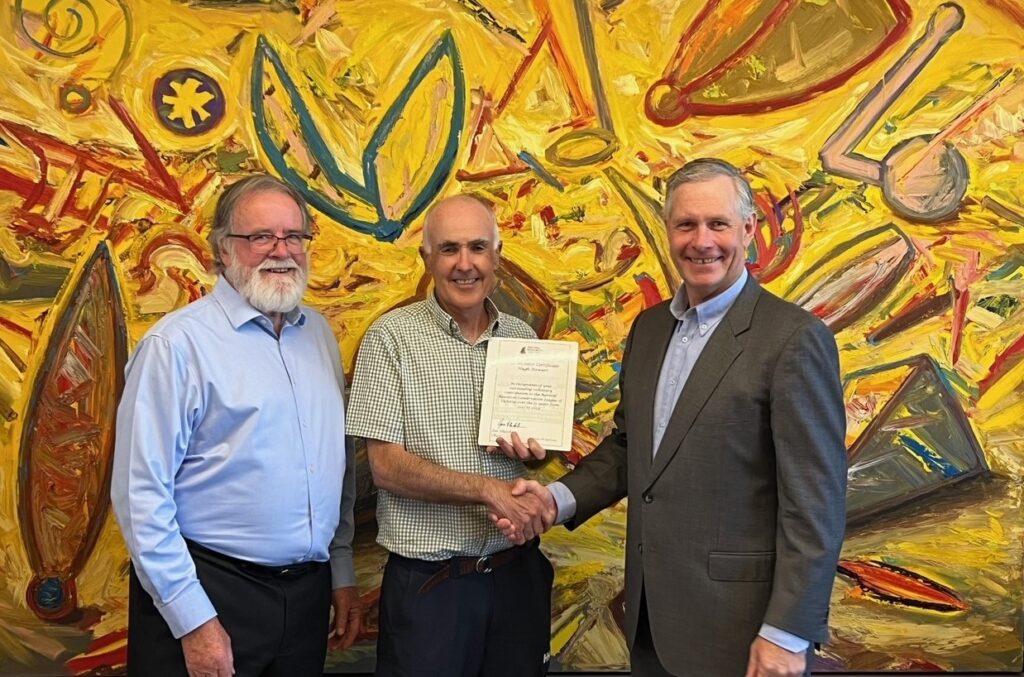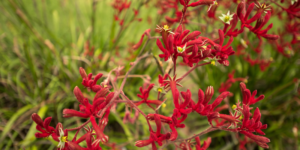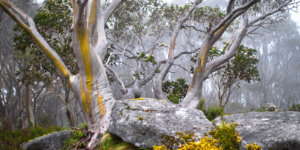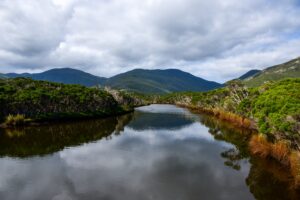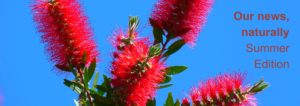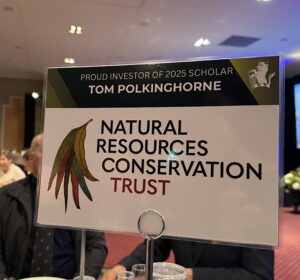Impact Report released
The Natural Resources Conservation Trust’s inaugural Impact Report has been released. It has been prepared alongside the annual report to demonstrate to NRCL and other stakeholders the impact that the Trust’s grantmaking and sponsorships have had in its first two years. Inside, you can read about the Trust’s collective impact as a new environmental philanthropic charity – albeit with a long-associated history of making a difference to the environment in Victoria since 1944.
In 2019, the Natural Resources Conservation League (NRCL) established the Trust as its grant making arm. Significant Trust corpus funding was provided by NRCL to enable grant making to occur.
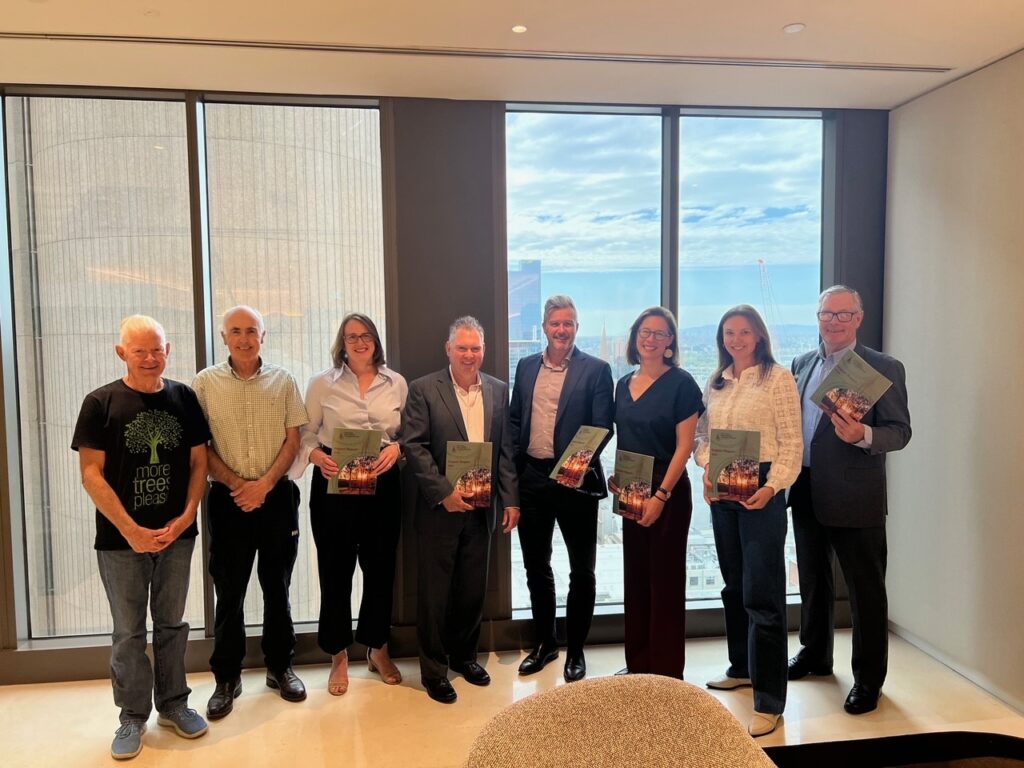
Reflections of a seed collector
Euroa Arboretum Development Manager Cathy Olive reflects on her journey from collecting seeds in her pockets on family holidays, to her current role at the arboretum.
Her article, ‘Reflections of a seed collector’ outlines the diversity of plants that they harvest seeds from, including Hedge Wattle that requires thick gloves to collect its seeds thanks to its needle-sharp prickles, and the Narrow leaved Hop Bush with its papery seed pods that split three ways, with seeds nestled in each delicate wing.
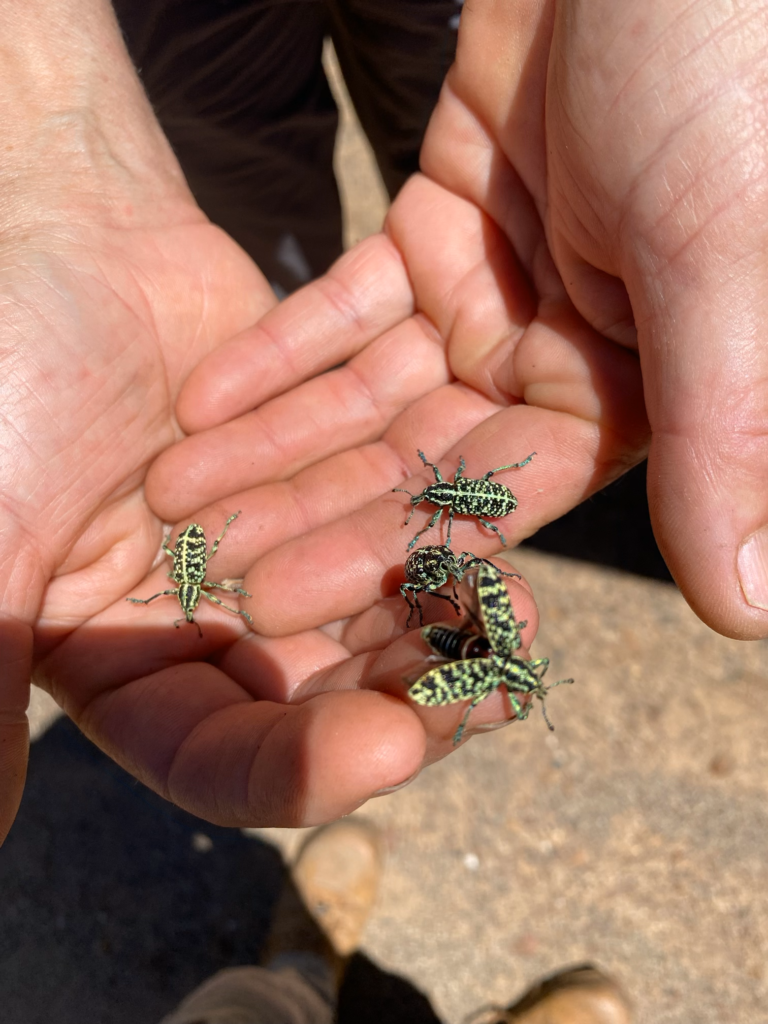
Cathy says that “It’s quite common for our seed collecting team to spend morning tea or lunch with heads in our seed buckets, identifying the myriad of spiders, beetles and bugs moving through the pods. We leave our bags open and allow them to escape through the day”.
The article also touches on the abundance of seed that Australian plants produce, the timing required to collect seeds at the correct time and the ways that climate change is impacting on the way plants produce seeds. She ponders about the ongoing impacts of climate change and whether in the future, there will be enough seed to go around.
“If you have driven 60km to that particular patch of bushland, for that particular plant and find only a few seeds – will you still take only 10% – or will you be tempted to take more than your share? Will seed cost so much in travel and time from wild harvest that it becomes financially unviable to collect?”
Natural Resources and Conservation Trust, along with Taungurung Land and Waters Corporation have provided funding to the Euroa Arboretum for the development of seed orchards.
Cathy explains that so far this year, they have 8,000 plants over about 20 species targeted for the orchards.
“Still a drop in the ocean for what is required, but an important step away from reliance on wild harvest,” she said.
“There is so much room for improvement in how we collect and use seed. From orchards to site selection, preparation and sowing, plus ongoing maintenance – if seed was respected as a precious resource, we would use it more sparingly, invest in research and walk alongside our Traditional Owners. As a custodian of seed, may we remember to listen to the needs of country first, rather than the demands of people and government agencies.”
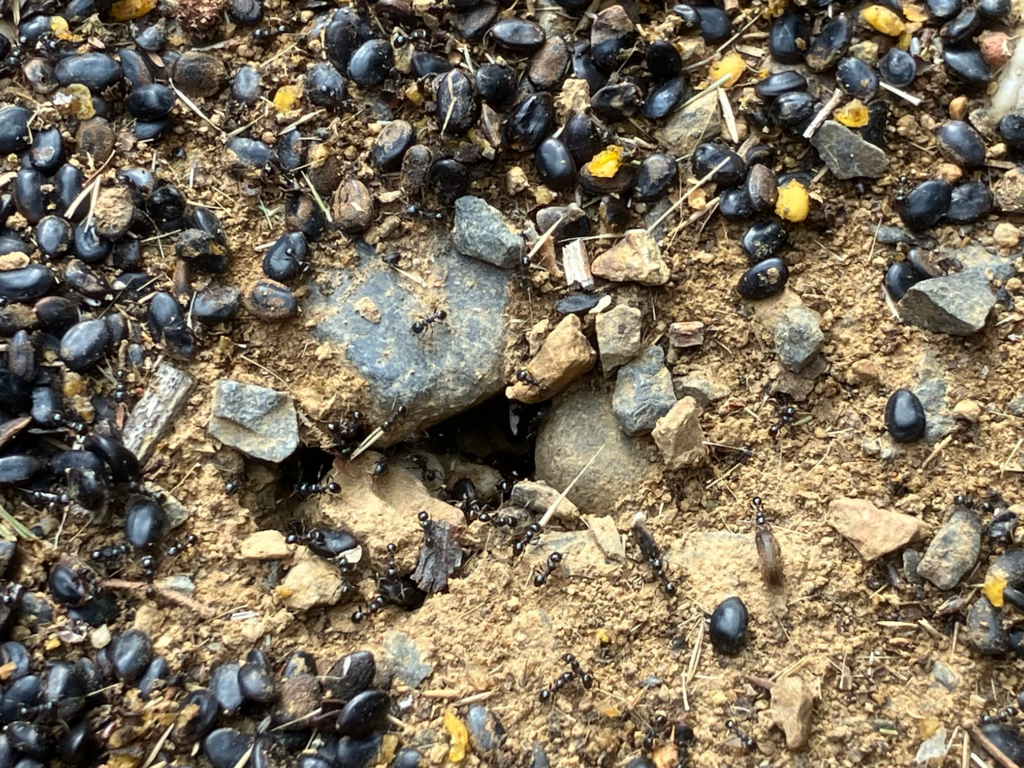
The Bunanyung Landscape Alliance launched its new Bunanyung Native Habitat Restoration Guide at an event in Ross Creek recently.
The Bunanyung Native Habitat Restoration Guide is an invaluable tool for restoring degraded land. Based on detailed floristic mapping units, the guide helps landowners select the right indigenous plants for their region, supporting local biodiversity. Whether you’re a land manager, gardener, or community member, this resource will empower you to contribute to ecological restoration efforts.
Whether you have a farm or a small property, this guide will provide you with the tools and knowledge to make a positive impact on the environment. The guide will show you how to discover what plants originally existed on your land and how to select suitable plants for revegetation using a new tool in the Corangamite Catchment Management Authority (CCMA) NRM Planning Portal.
The development of this guide was proudly supported by the Natural Resources Conservation Trust.
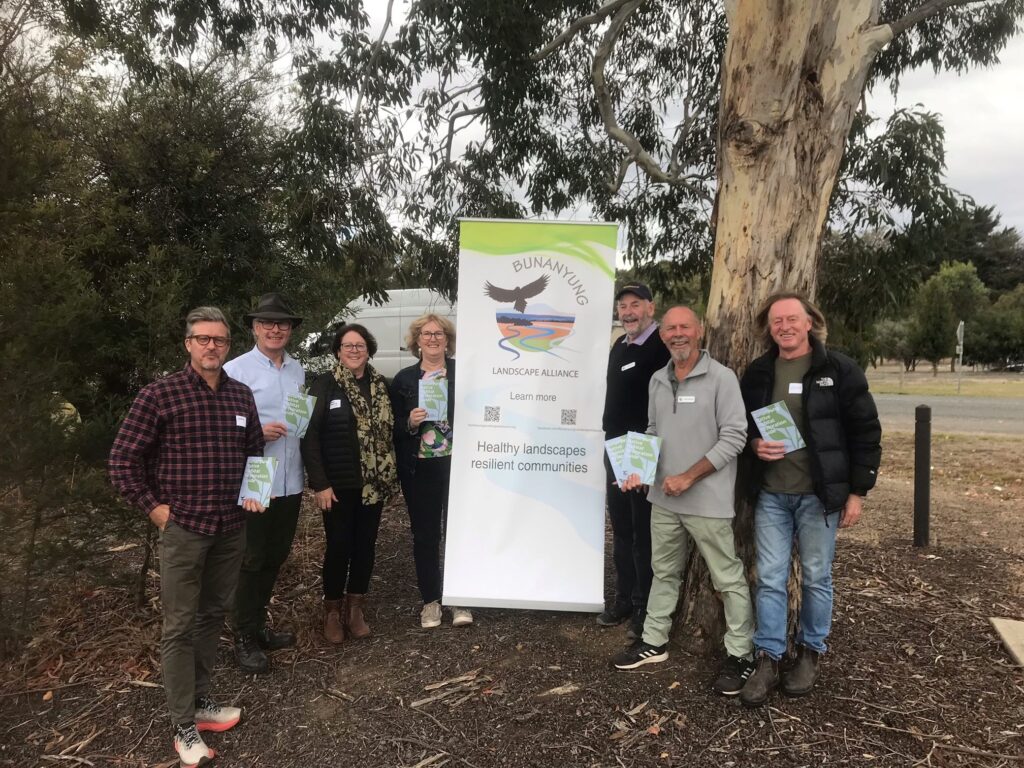
Conference wrap up
VicBioCon 2025
This year’s Victorian Biodiversity Conference (VicBioCon) at Monash University brought together over 400 attendees – students, academics, ecological consultants, government representatives, and NGO professionals. The conference is an annual event, focused on highlighting biodiversity-related research and management practices.
The Trust was proud to sponsor VicBioCon 2025 and also provided support to the next generation of researchers through two impactful grants:
- VicBioCon Research Grant
- Youth Engagement in Forest Conservation Grant
A huge congratulations to the recipients:
Meg Farmer (Deakin University) – Awarded the VicBioCon Research Grant for her work on the ecology and conservation of long-nosed potoroos during a feral cat eradication program. Her research aims to fill key knowledge gaps in predator-prey dynamics and inform better habitat management strategies.
ShuqiaoZhang (University of Melbourne) – Recipient of the Youth Engagement in Forest Conservation Grant for their research on integrating aquaculture and agroforestry. Their study explores sustainable strategies for nutrient recycling, water conservation, and forest restoration, linking biomass accumulation with climate change-driven shifts in fire intervals.
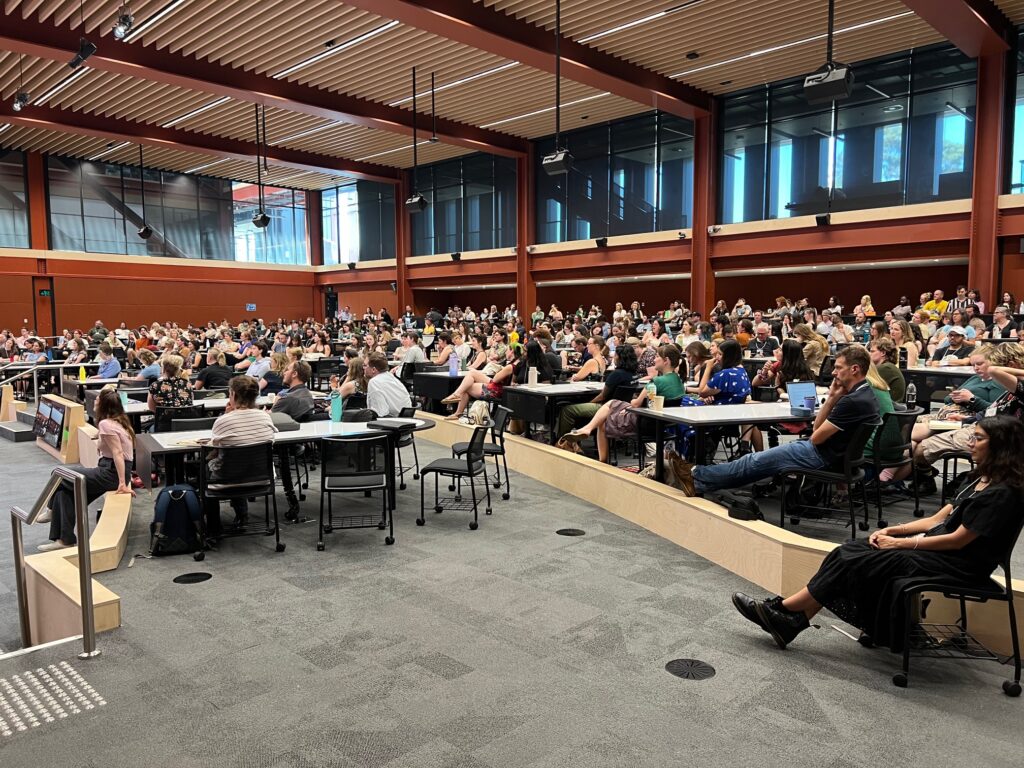
Southwest Environment Alliance ‘Our Community, Our Environment’ Conference
The Southwest Environment Alliance (SEA) “Our Community, Our Environment” Conference drew 180 attendees and a subsequent Strategic Planning Day engaged 32 participants, generating over 100 ideas for a Community Action Plan.
SEA President, Lynn Murrell advised that, “These initiatives increased understanding of climate change and environmental challenges, while also building and strengthening new relationships with the Glenelg Shire Council, Committee for Portland, and Glenelg Hopkins CMA”.
The Conference was sponsored by the Trust and held in Portland on 1 February 2025 and was followed by a tour of the World Heritage Budj Bim cultural landscape site. The tour was complete with a visit to the Tae Rak (Lake Condah) Aquaculture Centre, stopping at the weir and then walking to the Muldoon’s aquaculture system – one of the world’s oldest aquaculture systems designed and built over 6000 years ago to harvest eels. Tour participants got the opportunity to dine out on the tasty smoked eel for lunch!
Such was the quality of the tour and conference speakers, who included Prof Tim Flannery and Geomorphologist Rob Gell AM, the event was quickly sold out. Momentum following the event has carried over into development of a Community Action Plan which will be released by SEA shortly.
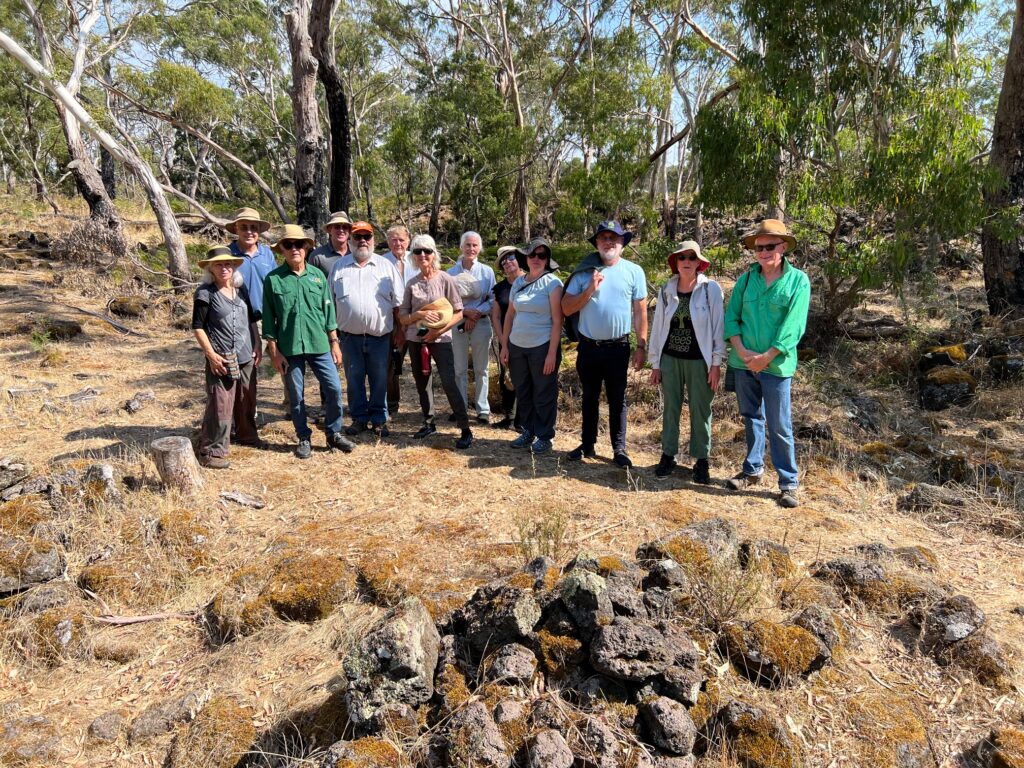
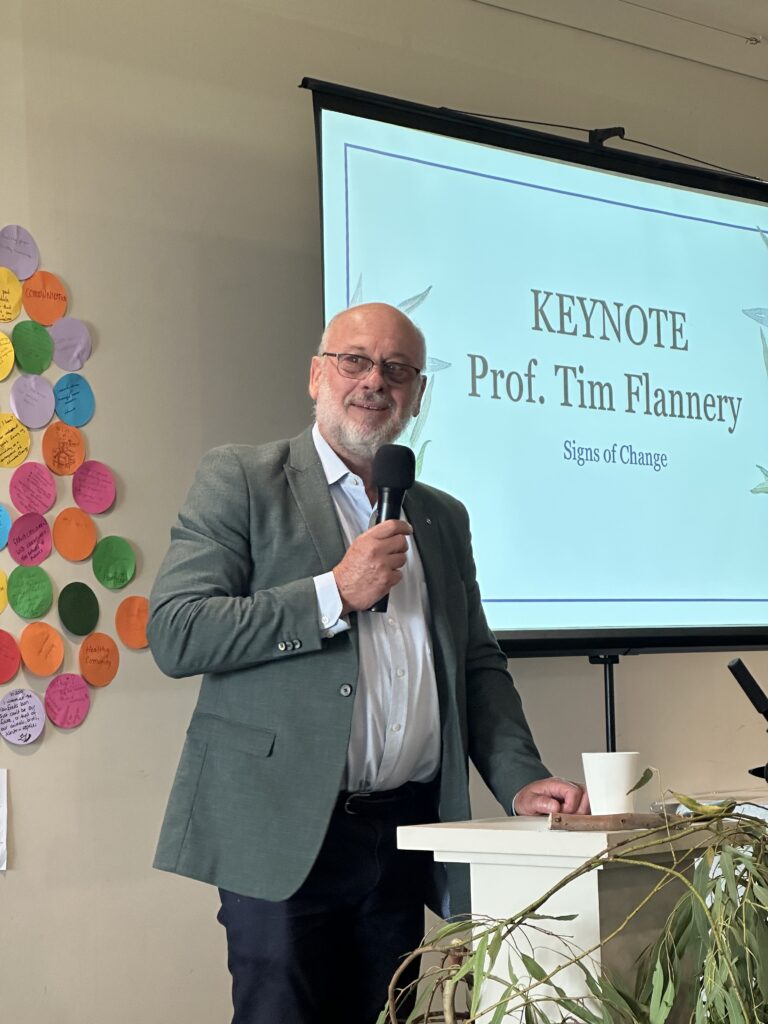
New Board directors welcomed
In March, the Trust appointed two additional directors to the Board, Cecilia Riebl and Jeremy Cheesman.
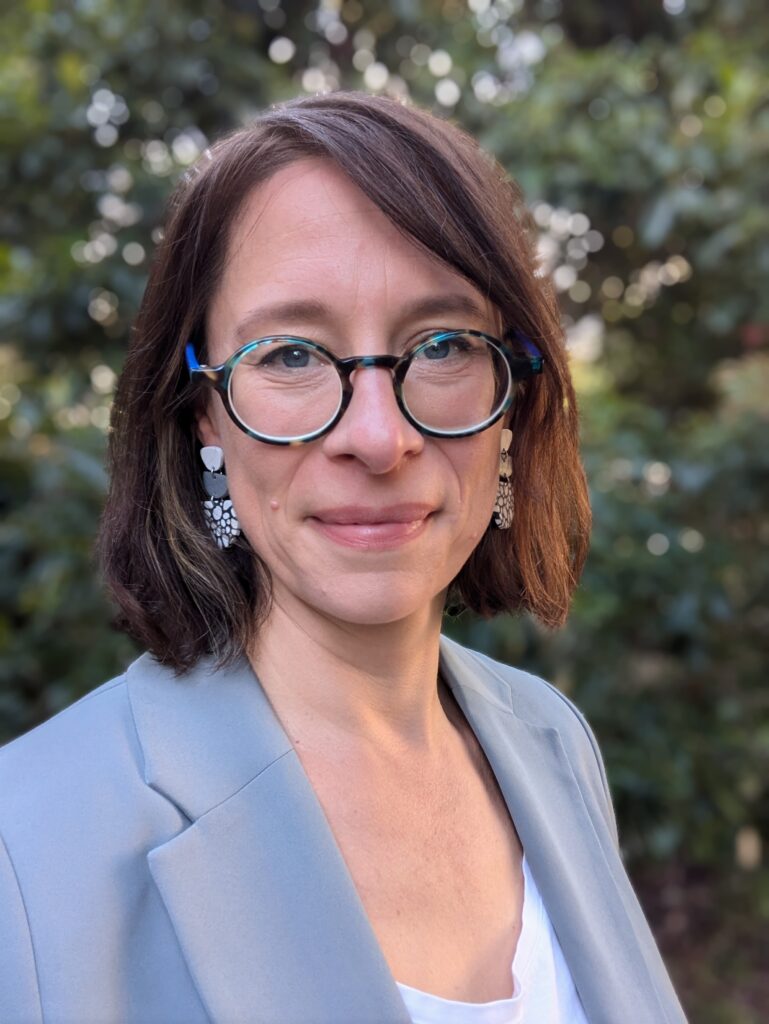
Meet Cecilia:
Cecilia has worked for more than 15 years in environmental law, policy, strategy and markets. She has recently joined the Australian Land Conservation Alliance (ALCA) to lead the development of a permanent protection methodology under the Nature Repair Market. Prior to this, she spent eight years as Trust for Nature’s
dedicated senior policy advisor, where she led policy and government engagement at the national, state and local level. Cecilia is particularly passionate about working with landholders to bring biodiversity back onto farms; and with First Peoples to formally recognise their critical role in Caring for Country in Victoria. As Regional Representative for the International Land Conservation Network Cecilia is helping to build and grow a strong network of international conservation practitioners and is committed to bringing together experts from around the world to share scalable and equitable solutions to our biodiversity crisis. She is a qualified lawyer with experience in the government, commercial and not-for-profit sectors, and in 2009 she completed a Masters in Climate Policy at the University of Cambridge. When she’s not at work, Cecilia loves spending time with her family, hiking, cycling, painting, reading and walking her kelpies on the creek.
Meet Jeremy:
Jeremy is an environmental economist with specialisation in environmental economics, policy, governance, regulation and markets, particularly relating to biodiversity and water.

He is an advisor to governments, the private sector, and NFPs on environmental markets, and approaches for scaling and accelerating prudent investment in natural capital. He is a member of the Australian Water Partnership Technical Advisory Panel, the Murray Darling Basin Social and Economic Community of Practice, and a Director of the water market aggregation platform Waterflow, and the economic advisory practice Marsden Jacob Associates. When not at work you’ll find Jeremy outdoors trail running, hiking, and swimming with family and friends.
Looking Back – Neil Douglas Award
ln 1971, the artist Mr. Neil Douglas expressed a wish to establish an annual award for outstanding meritorious service to the cause of conservation in Victoria and offered one of his paintings to be made available as a prize each year during his lifetime.
The Victorian Conservation Prize (Neil Douglas Award) was established. The prize was to be awarded each year on the basis of the most significant and noteworthy contribution to the conservation of the natural resources of the State of Victoria during the five years immediately preceding the date of the award.
The Natural Resources Conservation League of Victoria was awarded the inaugural Victorian Conservation Prize- in the words of the citation ”for sustained endeavour throughout the last five years in promoting public interest in and featuring topical problems arising from the management and use of our natural resources”.
The prize was a painting, titled ‘The Great Australian Presence’, which depicts a scene from Wyperfeld National Park. Then Victorian Minister for Conservation, The Hon. Bill Borthwick congratulated NRCL President George Thompson in winning the award alongside the artist, Neil Douglas. The painting has recently been returned to NRCL from the Elizabeth Arthur Fine Art Gallery in Hamilton, where it had previously been on display. Thank you, Elizabeth, for taking great care of the painting for well over a decade!
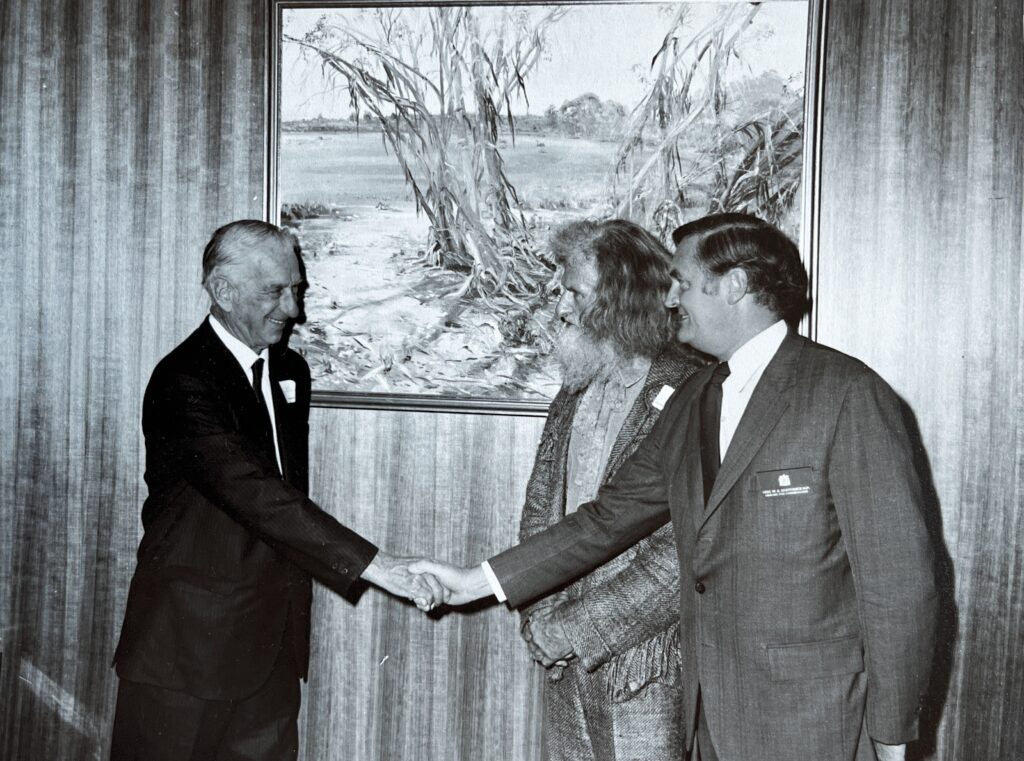
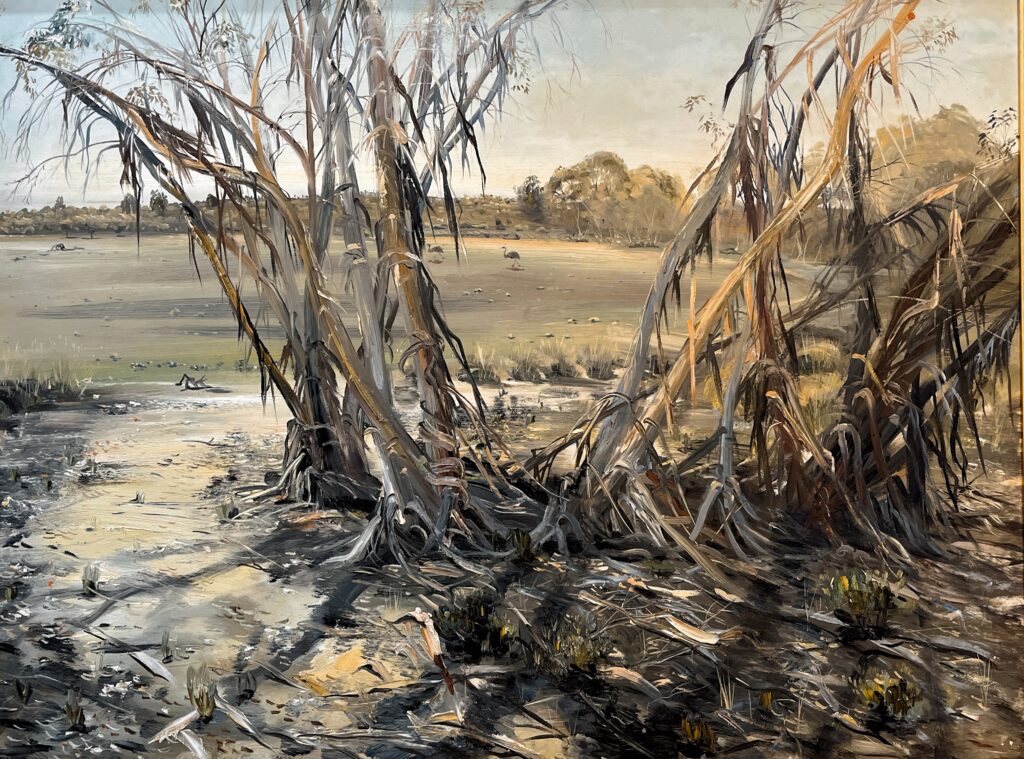
New pilot landscapes selected for New Futures
Congratulations to Heytesbury District Landcare Network and to the Kiewa Catchment Landcare Network & Wodonga Urban Landcare Network collective on being selected as the final two pilot landscapes for Landcare Victoria’s New Futures for Victorian Landcare project.
These networks will undertake a landscape planning and stakeholder engagement process to inform the development of a Landscape Action Plan. Landcare Victoria, along with their project delivery partners, Regen Farmers Mutual, Landscape Finance Lab and ANU Sustainable Farms Initiative, will continue to explore a model that enables landcare to access other forms of funding to implement their plans.
We look forward to a seeing the progress of these two pilot landscapes in 2025.
The New Futures Project is funded by the Trust and the Ian Potter Foundation.
NRCL Life Membership awarded
Director Hugh Stewart tendered his resignation from the NRCL Board, effective on 17 April 2024.
Hugh commenced on the NRCL Board in 2012 and is also a founding Director of the Natural Resources Conservation Trust Board. Hugh then became a Mutual Director on both NRCL and Trust Boards, helping to steer both organisations through the Covid pandemic, oversee the sale of Lot 1 Cranbourne West and the establishment of the operation of the Trust.
Hugh combines many years of experience in forestry research and management in his current role as Principal of Hugh Stewart Consulting. Hugh also has a lifelong interest in the Stewart family farm at Deans Marsh in southern Victoria. Since 1992 he has worked with family members to re-develop the 229-hectare property to achieve sustainable land use by integrating agroforestry with prime lamb production.
Hugh’s contribution to NRCL will be missed, particularly in his work as past Chair of the Governance and Performance Committee, however Hugh’s skills will not be lost entirely as Hugh plans to continue to serve as Director on the Trust Board. The Chair acknowledged on behalf of the Board, Hugh’s significant voluntary contribution to NRCL over the past 12 years and on behalf of the NRCL Members and Board, awarded NRCL Life Membership to Hugh at the recent AGM. Congratulations Hugh!
